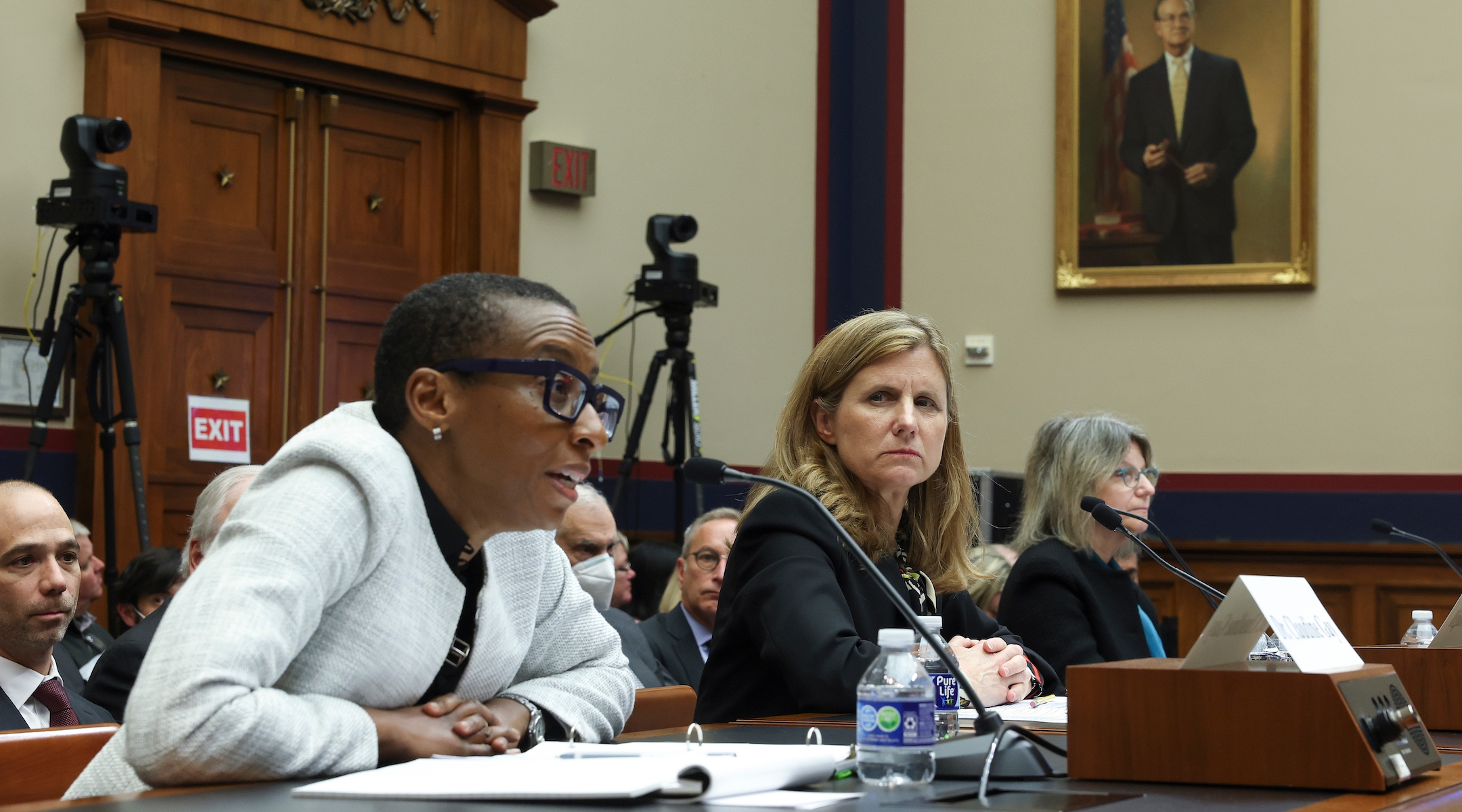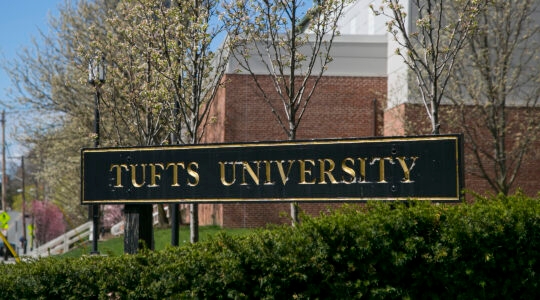(JTA) — Facing criticism and calls to resign, the presidents of the University of Pennsylvania and Harvard University condemned calling for the genocide of Jews.
Penn’s president, Liz Magill, promised to launch a process to clarify and evaluate the school’s policies regarding speech on campus. She said calls for genocide of Jews are “evil, plain and simple.”
The statements by Magill and Harvard President Claudine Gay follow a congressional hearing on Tuesday in which Rep. Elise Stefanik, a Republican from New York, asked them whether calling for the genocide of Jews would constitute harassment under their school’s code of conduct. Gay and Magill, along with Massachusetts Institute of Technology President Sally Kornbluth, all responded under oath that the answer depends on “context.”
In a statement Wednesday, Gay said students would face consequences if they called for genocide.
“There are some who have confused a right to free expression with the idea that Harvard will condone calls for violence against Jewish students,” Gay said. “Let me be clear: Calls for violence or genocide against the Jewish community, or any religious or ethnic group are vile, they have no place at Harvard, and those who threaten our Jewish students will be held to account.”
Video of the exchange at the congressional hearing has gone viral and has prompted criticism of the three leaders from Jewish groups, students, donors and elected officials, including the Biden administration. White House spokesman Andrew Bates said in a statement that calls for the genocide of Jews are “dangerous and revolting.”
The U.S. Holocaust Memorial Museum wrote on X, formerly known as Twitter, “Opposing calls for genocide against Jews shouldn’t be difficult or controversial.”
Kornbluth, who is Jewish, does not appear to have publicly addressed the exchange.
Magill has taken flak for her statement from the board chair of Penn’s business school as well as Pennsylvania Gov. Josh Shapiro, who called on the university’s board to discuss her remarks and come to a “serious decision.” As governor, Shapiro is a non-voting trustee of the university, which is private.
Following Shapiro’s remarks, Magill released a video statement in which she said that she had answered Stefanik’s question based on the broad free speech protections laid out by the U.S. Constitution. She said, however, that she should have answered differently and, invoking the long history of antisemitism, said that she personally viewed a call for the genocide of Jews as “harassment or intimidation.”
She stopped short of saying such a call would violate university policy, but said that Penn’s leadership would begin a process to conduct “a serious and careful look at our policies.”
“I was not focused on, but I should have been, the irrefutable fact that a call for genocide of Jewish people is a call for some of the most terrible violence human beings can perpetrate,” she said. “It’s evil, plain and simple. I want to be clear: A call for genocide of Jewish people is threatening, deeply so. It is intentionally meant to terrify a people who have been subjected to pogroms and hatred for centuries and were the victims of mass genocide in the Holocaust.”
She concluded, “As president I’m committed to a safe, secure and supportive environment so all members of our community can thrive. We can and we will get this right.”
JTA has documented Jewish history in real-time for over a century. Keep our journalism strong by joining us in supporting independent, award-winning reporting.






